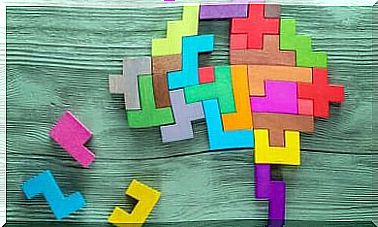What Is The Connection Between Mood And Health?

For decades, experts have wondered if diseases are in some way related to emotions. But nowadays they have become more focused on studying the connection between mood and health.
We know that our pain depends on the extent to which we perceive it, in addition to our state of mind. Although experts know the biological origins of some diseases, they still can not explain many aspects of them. Therefore, many professionals suggest a possible mental origin.
But when we enter this field, it is much less clear what mechanisms and moods can affect our health. This is because one has to take into account a number of social, cognitive, physiological and behavioral factors. These mechanisms can also have either a direct or indirect effect on disease.

The connection between mood and health
Emotions can affect how our body works. There is a lot of evidence for the fact that negative emotions affect the duration of infections, vulnerability and the healing process.
This may be because a positive mood promotes the secretion of an important antibody: Immunoglobin A. This drug can protect people against, for example, colds.
Thus , your mood can either increase or dampen the immune system’s response to a disease or disorder. Experts have noticed that people who have a negative mood or point of view are more prone to colds and have less resistance to more serious diseases.
Subjective health status
Emotions not only determine direct physiological factors but can also condition your thoughts. In other words, a negative mood will make it easier for you to have more negative thoughts. This allows you to recognize and interpret physical symptoms as possible health problems.
With this in mind, experts have found that when study participants were sad, they said they had multiple symptoms. This is because people with multiple negative emotions are usually more aware of how their body feels. Therefore, the slightest sign of pain or other emotion will make them worry more than positive people.
Seek medical help
In relation to what we mentioned above, one might think that people who are more concerned about their body and their health tend to go to specialists earlier. But research shows that the opposite is actually the case.
It seems that people do not feel that they are less able to take care of their health, and thus they consult doctors less often. It’s like they think they can not really improve things.
In addition, they may find themselves blaming their symptoms on their mood, thus delaying getting expert help. When a person feels better, they become more motivated to stay healthy and take care of themselves.
On the other hand, it seems that mood and seeking medical help are also related to the ability to cope with possible negative news. They perceive going to the doctor as a threat, and they can potentially get some disruptive news.

Healthy behavior
In addition to affecting your body and your perception of illness, your mood also affects your behavior and actions.
When you are in a bad mood, you are likely to eat less healthily, consume more alcohol, exercise less, etc. When it comes to tobacco consumption, most smokers say they use tobacco to regulate or improve their mood after reducing their stress levels.
Usually, these patterns of behavior act as regulators, controlling the effects on mood and health in one way or another. We do this to make us feel better or to reduce negative emotions. Thus, these behavioral patterns are directly related to health.
If you thereby increase unhealthy behavior due to your negative mood, your health will be affected in the short and long term.
Mood and health: What should you do?
You know that it is inevitable that you will experience negative emotions. Because of this , you need to make sure you acquire healthy habits in life.
Although they can sometimes be overshadowed by your mood, these habits will help offset some of the harmful effects. If your mood varies and you have a large repertoire of coping mechanisms, your grief will be more tolerable and their effect will be less.








